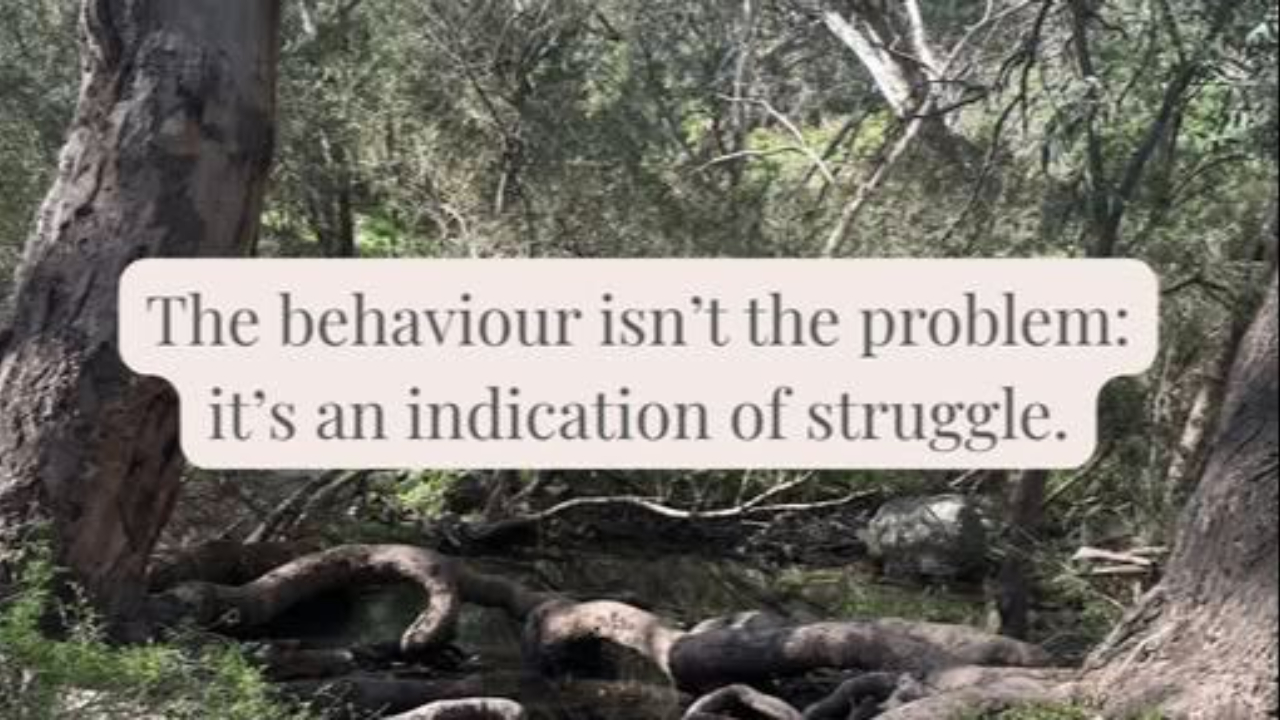To Struggle Is To Be Human

Our children struggling does not immediately indicate that we are not doing enough, or that we are missing some crucial information. To struggle is to be human and our behaviour is not the problem - it’s an end result, or an outer indication of a struggle. The struggle comes from a problem.
Sometimes we get lost in a sea of bad advice and terrible opinions on what ‘behaviour’ should look like, and what should be done about it.. but moreso, what 'normal' is and isn’t.
Behaviour can be both responsive and reactive.
As an adult, I am not a perfect model of human being and doing. And yet, many adults will be so quick to judge the behaviour of a child without further exploration. We’re often bullied and shamed as parents when our children behave in certain ways as opposed to being supported by those who might be curious rather than prescriptive.
What society names as ‘insane’ often isn’t. But our expectations of others, in particular children, is. Do we consider that the very use of the word 'insane' is sanist - making fun of and comparing circumstances and ideas that are not 'ideal' to actual humans with varying forms of neurodivergence labelled as not in their 'right mind'?
Did your child sit through an assessment with an outcome of being told they’re autistic?
Were they then thrust into systems where they were expected to be NOT autistic? To think and be as a child who is not autistic? To produce school work, to move their bodies and have the same needs as a child who is not autistic?
Have they sat in therapy with professionals who set goals to achieve such outcomes?
Does that make sense? Is it realistic? Who does it serve, truly?
An autistic person is not a neuronormative person. Our children are whole and complete autistic people who happen to be experiencing life and all the feelings that come along with it.
There are 'insane' things happening in the world right now. Never mind the focus on behaviour in children. Let's zoom out for a moment.. horrific, dehumanising, terrifying things carried out by adults. Adults in positions of power, trust and authority. Adults delegated to being in those positions by other adults who voted for them.
Anxiety, fear, asking questions, demanding action is responsive. It is appropriate. Responding with fear, insecurity, outrage and suffering makes perfect sense.
Pretending everything is ‘normal’ is not. Children see through this behaviour - where adults pretend. And it doesn’t create safety, it creates uncertainty, mistrust and fear.
Having hard conversations is crucial, and yet having those hard conversations is a skillset not taught to people.
We are taught more of this:
“If you behave that way again, you’ll be grounded for a week/lose your X-Box/not see your friends”
Instead of this:
“What might be under this behaviour and how might I meet this child in the actual problem they’re experiencing in order to empower them with safety and the skills to manage this together?”
Instant gratification isn’t just about children wanting things now.
It’s also about adults having a sense of entitlement to others changing their behaviour, thoughts and processes to make us more comfortable. It’s about adults having the privilege of choosing not to delve deeper to understand ourselves and others and a capitalist society that supports that. It’s about adults that cannot tolerate difference, including difference of experience and perspective. It’s about adults that have reached this part of our lives lacking in the ability to truly listen deeply to others and meet them without the need for defensiveness. It's about adults who instead of sitting with the thoughts and feelings of others, are quick to jump in with the 'what about's and the 'what if's.
I wonder if we ever truly consider that there may not be a problem with our children’s behaviour, but with ours?
I wonder if we ever truly see the scapegoating of our children in a society that calls for compliance as a means to keep the cogs of production turning and have us looking the other way.
Our children are not the problem.
KF